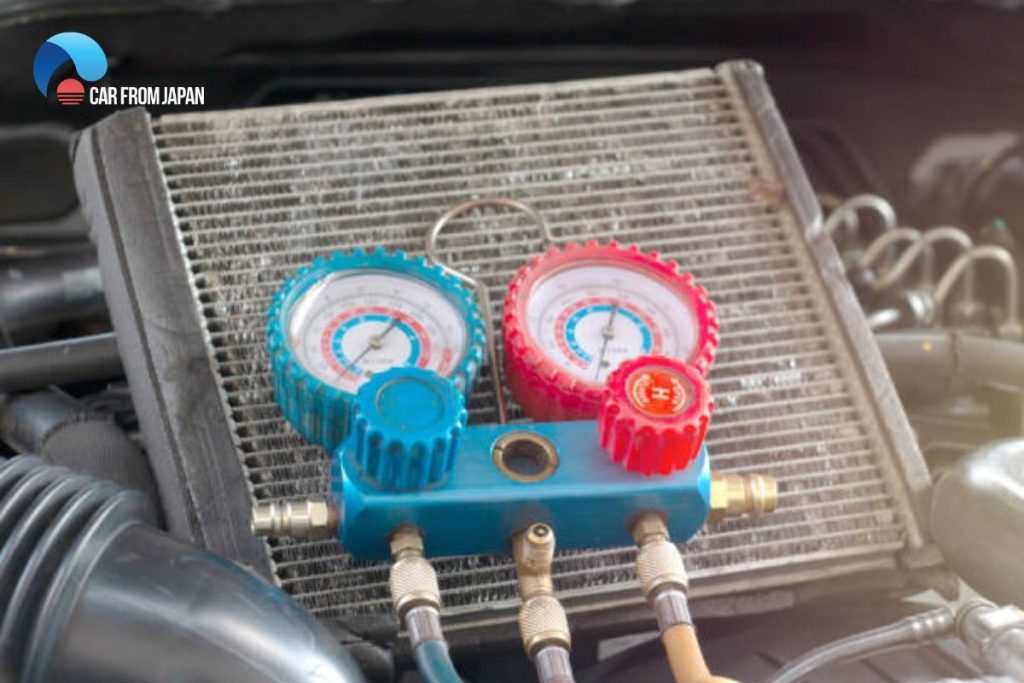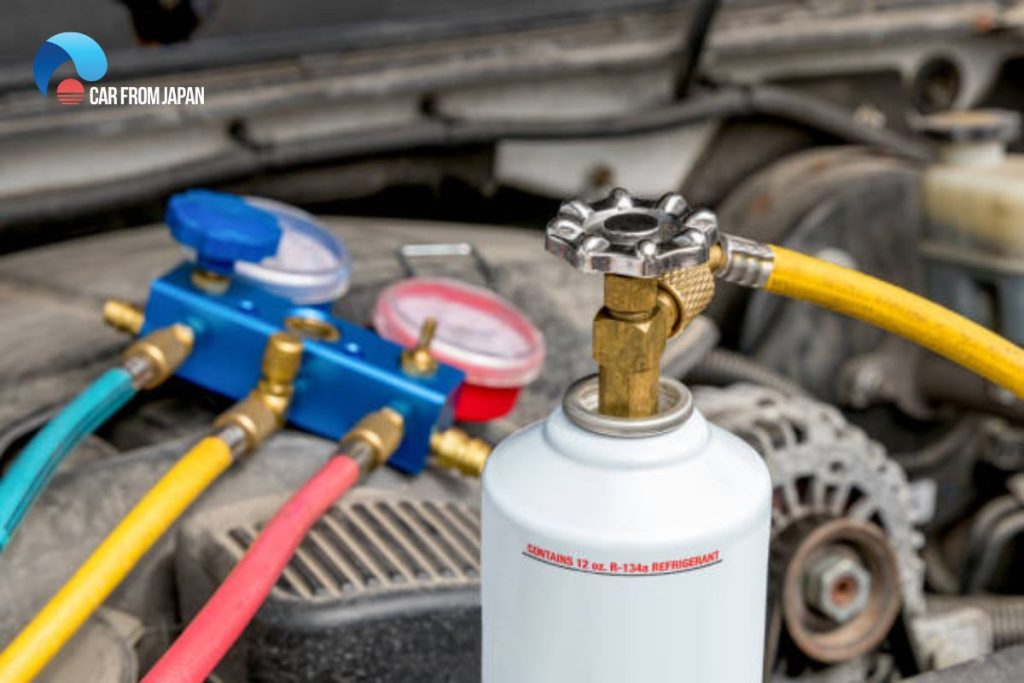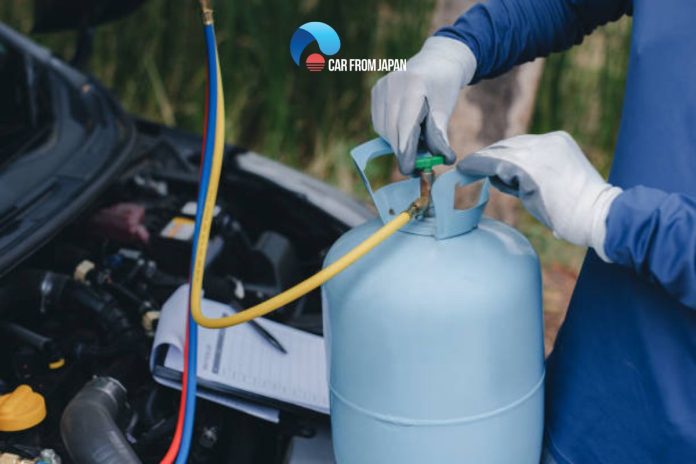Many people think that more Freon always means better cooling. However, overcharging your car’s AC system can actually have the opposite effect, leading to a host of problems. Therefore, knowing too much Freon in car AC symptoms can alert you before anything undesirable happens.
Contents
Why Too Much Freon Is Bad For Your Car?
Here’s a breakdown of why too much Freon is bad for your car’s AC system:
Pressure buildup
Freon circulates in a closed system, and its pressure is carefully balanced. Overcharging throws this balance off, leading to excessive pressure within the system.
Compressor damage
The AC compressor is responsible for circulating the refrigerant. High pressure puts a tremendous strain on the compressor, potentially leading to overheating, wear and tear, and eventual failure.

Hose and seal leaks
The increased pressure can also cause weak points in hoses and seals to give way, resulting in refrigerant leaks. Freon is harmful to the environment, and leaks can be costly to repair.
In short, overcharging your AC system is a recipe for trouble. It’s essential to have the refrigerant levels checked and adjusted by a qualified mechanic to ensure optimal performance and longevity.
Too Much Freon in Car AC Symptoms
If you encounter any of the following symptoms, there might be some issues with the AC system, probably an overcharged AC.
Lack of cooling
The most evident symptom of overcharged AC is that it will not cool the car. Due to the overcharged status, the liquid in the system doesn’t have enough room to depressurize. As a result, it will not be capable of providing sufficient cooling in the interior of the car.
When you turn on the AC, there will be a small amount of cool air coming out of it. Or, the air could have the same temperature as the ambiance. In the worst cases, an overcharged AC will blow out hot air.
No air circulation
In the case of some car manufacturers and models, a badly overcharged AC may fail to deliver any service at all. Which means the AC will not turn on when it’s overcharged.
Some AC systems can detect the incorrect Freon pressure and will not function to prevent the occurrence of any damage. It may sound frustrating, but this safety feature saves the system from malfunctioning.
A high-pressure reading
The reading of the pressure gauge is the best way to confirm whether the AC system is overcharged. The pressure gauge will display higher pressures and higher temperatures.

Compressor noise
In an overcharged AC, the compressor needs to put more effort into passing all the coolant through the lines. The decompression from the liquid into the gas cannot take place. Instead, the compressor gushes out the liquid coolant in place of the gas coolant. You will notice that the AC is making more sound as the outcome of all these actions.
Engine issues
A healthy car air conditioner requires a significant amount of power to function. Its power demand increases when there is too much Freon. In this situation, noises may come out from the drive belt.
Besides, poor acceleration, high fuel consumption, or rough idling are some other engine problems you will face when the AC is in trouble. If turning off the AC fixes these issues, excess Freon could be the cause.
Broken compressor
When the AC is unable to handle the overflowing coolant, its compressor will break down. In an overcharged AC, the valves and seals of the compressor easily break down under pressure. It ultimately makes the air conditioner stop functioning. In this situation, contact the dealer immediately for a replacement.
Conclusion
Once you know about too much Freon in car AC symptoms, it does not take much effort to identify the issue when it occurs. Since this problem can lead to other serious troubles such as reduced cooling efficiency, AC cycling issues, or compressor damage… , fix it immediately to avoid further damage to the AC and other components of the vehicle.



